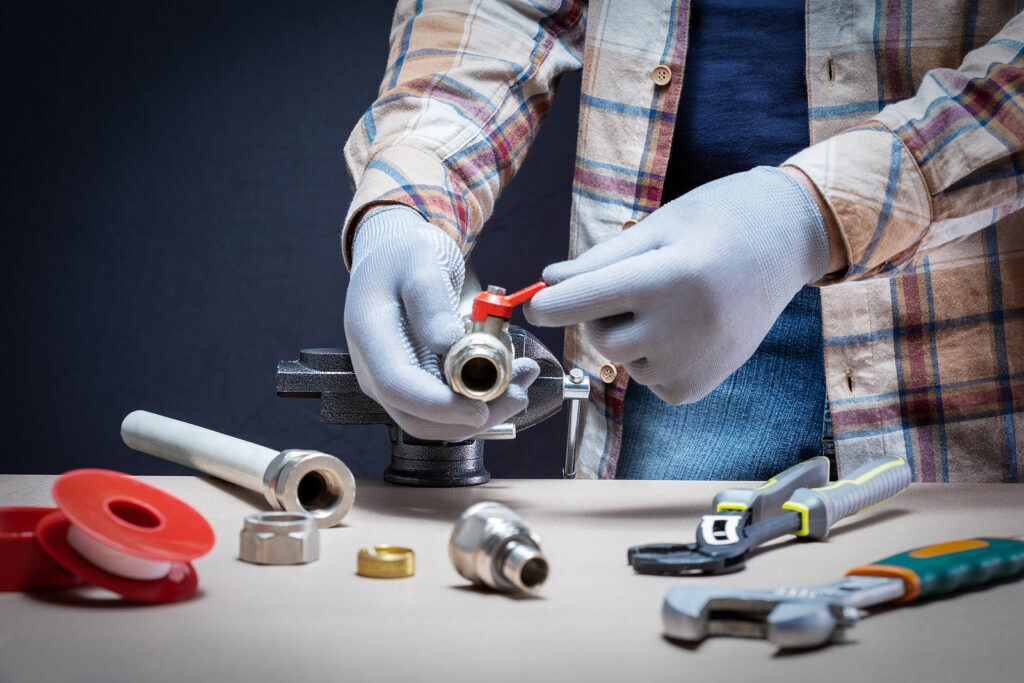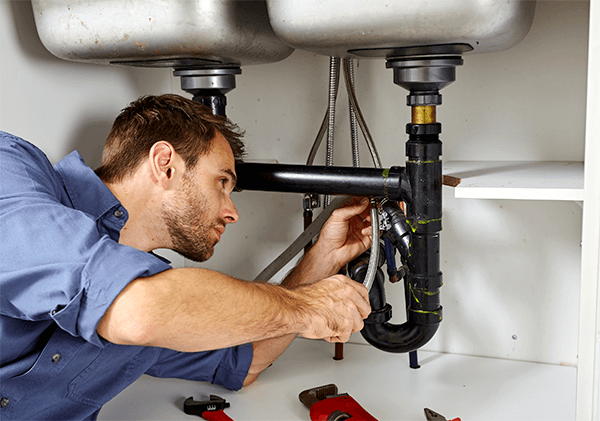Each person has got their private rationale with regards to What to Do While Waiting for an Emergency Plumber.

Plumbing emergency situations can strike at any moment, creating tension and prospective damages to your home. Whether it's a burst pipeline, a clogged drain, or a dripping tap, knowing how to manage the situation until a professional plumber arrives can conserve you from more issues. This post supplies necessary emergency plumbing tips to help you minimize damages and gain back control during a plumbing crisis.
Switch off the Water System
The primary step in any pipes emergency situation is to turn off the supply of water. For localized concerns, such as a dripping faucet or toilet, switch off the shutoff near the fixture. In the case of a significant leakage or burst pipeline, find your home's primary water shut-off valve and transform it off right away. Knowing the place of these valves ahead of time can save valuable time throughout an emergency.
Shut down Your Hot Water Heater
In certain emergency situations, such as a ruptured pipe, it's important to turn off your water heater. This protects against overheating or damages to the system when water stops moving. Turn off the power supply to the hot water heater (electric or gas) and let it cool to prevent possible dangers.
Temporarily Quit a Burst Pipeline
A burst pipeline can result in significant water damages in minutes. To alleviate the issue:
- Clamp or Cover the Pipe: Make use of a pipe clamp, rubber, or air duct tape as a short-term seal.
- Draw Away Water Flow: When possible, divert the water right into a bucket or container to restrict damage to bordering areas.
- Keep the Location Dry: Use towels or a wet/dry vacuum cleaner to eliminate standing water.
- Call a specialist plumbing technician quickly to deal with the trouble permanently.
Have an Emergency Pipes Kit
Prepare a standard plumbing emergency package to handle minor concerns efficiently. Your kit ought to consist of: - Flexible wrench
- Plumbing's tape
- Pipeline clamps
- Towels and cloths
- A bettor
- Epoxy putty
- Bucket.
- Having these tools handy can make a substantial difference in your capability to take care of emergencies.
Unclog Drains Safely.
A stopped up drain can be an aggravating and unpleasant issue. Here's exactly how to tackle it:. - Utilize a Bettor: For sinks or bathrooms, a bettor can often dislodge minor clogs. Guarantee you make use of the correct type of plunger for the fixture.
- Warm Water and Recipe Soap: For grease-related clogs, pour a mix of hot water and meal soap away to separate the grease.
- Avoid Chemical Drain Cleansers: While appealing, chemical cleansers can create even more harm than good, particularly to older pipes.
- If these techniques do not function, stay clear of using excessive force, as it may worsen the blockage.
Handle Overflowing Toilets.
An overflowing bathroom can trigger instant mayhem. Right here's what you must do:. - Quit the Water Circulation: Eliminate the container cover and weigh down on the flapper valve to stop water from entering the bowl. Turn off the supply of water to the toilet if required.
- Plunge Gently: Use a toilet plunger to clear the blockage, but avoid hostile plunging, which can create spilling or more damages.
- Consist of the Spill: Usage towels or a mop to clean up water rapidly to prevent flooring damage.
Address Small Leakages with Short-lived Solutions.
Tiny leakages can swiftly end up being significant problems if left uncontrolled. Make use of these momentary solutions until specialist aid shows up:.
- Pipe Tape or Epoxy Putty: Apply waterproof tape or epoxy putty to momentarily secure the leak.
- Rubber and Clamp Method: Cover an item of rubber or an old internal tube around the leak and secure it with a tube clamp or air duct tape.
- Buckets or Towels: Area containers under the leak to contain water and protect against damages to flooring or furniture.
- While these solutions aren't permanent, they can aid lessen water loss and damages.
Handle Frozen Water Lines Carefully.
In colder environments, icy pipes are a common emergency situation. If you presume a frozen pipeline:. - Turn Off the Water: Shut down the primary water to prevent a ruptured pipe.
- Thaw Slowly: Make use of a hairdryer, hot pad, or cozy towels to thaw the pipe slowly. Avoid open fires or extreme warm, as these can harm the pipe.
- Evaluate for Leakages: Once the pipe is defrosted, look for fractures or leakages before transforming the water back on.
Know When to Call an Expert.
While quick fixes can aid temporarily, particular plumbing concerns need immediate specialist attention. Call a plumber if:.
- A ruptured pipeline triggers considerable flooding.
- Drains or commodes remain stopped up despite your initiatives.
- You notice consistent leakages or water pressure concerns.
- Your water heater is dripping or malfunctioning.
- Promptly calling a specialist ensures the problem is settled correctly and stops further problems.
Prevent Additional Damage.
Taking quick action to lessen damages can conserve you time and money over time. Here's exactly how:. - Relocate Valuables: Remove furnishings, electronic devices, and other products from the damaged area.
- Use Sandbags: For flooding circumstances, place sandbags around the area to redirect water.
- Turn off Electricity: If water has actually gotten to electrical outlets or home appliances, switch off the electrical power to avoid shocks or fires.
Conclusion.
Plumbing emergency situations can be overwhelming, but with the ideal knowledge and tools, you can take care of the situation efficiently up until aid gets here. By switching off the water supply, addressing little leaks, and utilizing momentary repairs, you can lessen damage and keep your home safe. Keep in mind, these ideas are temporary services; constantly seek advice from a qualified plumber to deal with the source of the trouble. Preparation and quick reasoning are your ideal allies in any kind of pipes emergency situation.
8 Helpful Tips for Managing Plumbing Emergencies at Home
If your plumbing system hasn’t failed once, wait for it because almost everyone has a story to tell. Sometimes, it could be simple emergencies such as a leaking pipe, a blocked cistern, or even a big burst pipe. In situations like this, you need to have some handy tips to save you some money and from possible damages.
Take care of minor issues early.
Sometimes, you could have avoided an emergency by taking proactive measures while it was still early. Some major plumbing emergencies can be a result of an ignored minor issue. We recommend that you have items like plumbing tapes and other related items. A plumbing tape can allow you to manage minor leaks before the plumber arrives.
Cut off the water supply.
This tip is essential in almost any type of leakage problem. For problems like minor leakages in the toilet or kitchen, turn off the supply that takes water to the affected pipes. If the leakage is a major pipe, you must shut off the supply valve to the entire building. This will help you avoid flooding your home and neighbors if you share a flat.
Know your plumbing system
Folks typically move into a new apartment without understanding the water supply around the building. This can prove disastrous if a water emergency arises and the plumber is far away. The previous tip will prove useless if you don’t practice this one. More importantly, know where your water shut-off valve is located – you’ll need that knowledge to prevent potential home floods.
Have some common handy tools
There are lots of plumbing emergencies that you can handle without hiring a plumber. That’s why you must keep some tools available always. Some tools that you can use to fix simple plumbing emergencies easily include plumbing tapes, screwdrivers, thread seal tapes, plungers, pliers, tape measures, and rubber gloves.
Insulate your pipes from cold
You’ll save yourself from many plumbing expenses if you protect your water pipes from the cold. This is because of the harmful effects that cold weather can have on your pipes. During winter, your pipes can burst from being overly expected to freezing temperatures. So, make sure insulators are there to keep the pipes working correctly.
Avoid practices that will clog your toilet.
Many people indulge in practices that can damage the plumbing system of the entire building. One of these is when they use their toilet to dispose-off garbage. They flush all kinds of things, such as paper towels, bandages, hairs, female sanitary products, etc., down the toilet. This will block your toilet in the long run, incurring unnecessary expenditures. Dump such waste in the trash instead.
Check your dials regularly.
Sometimes, there could be leakages in your home without noticing them in time. So, constantly monitor your water meter dial. If the dial is reading when there is nobody using water, this is an indicator that there is leaking. Check for leaks immediately. Call a plumber as soon as possible if you can’t find any.
https://www.constructionplacements.com/8-helpful-tips-for-managing-plumbing-emergencies-at-home/

As an avid reader on What to Do During a Plumbing Emergency, I think sharing that section was sensible. Sharing is caring. You never know, you may just be doing someone a favor. I praise you for your time. Don't forget to check up our site back soon.
Call
Comments on “Crucial Emergency Plumbing Advice to Follow Until Help Arrives”